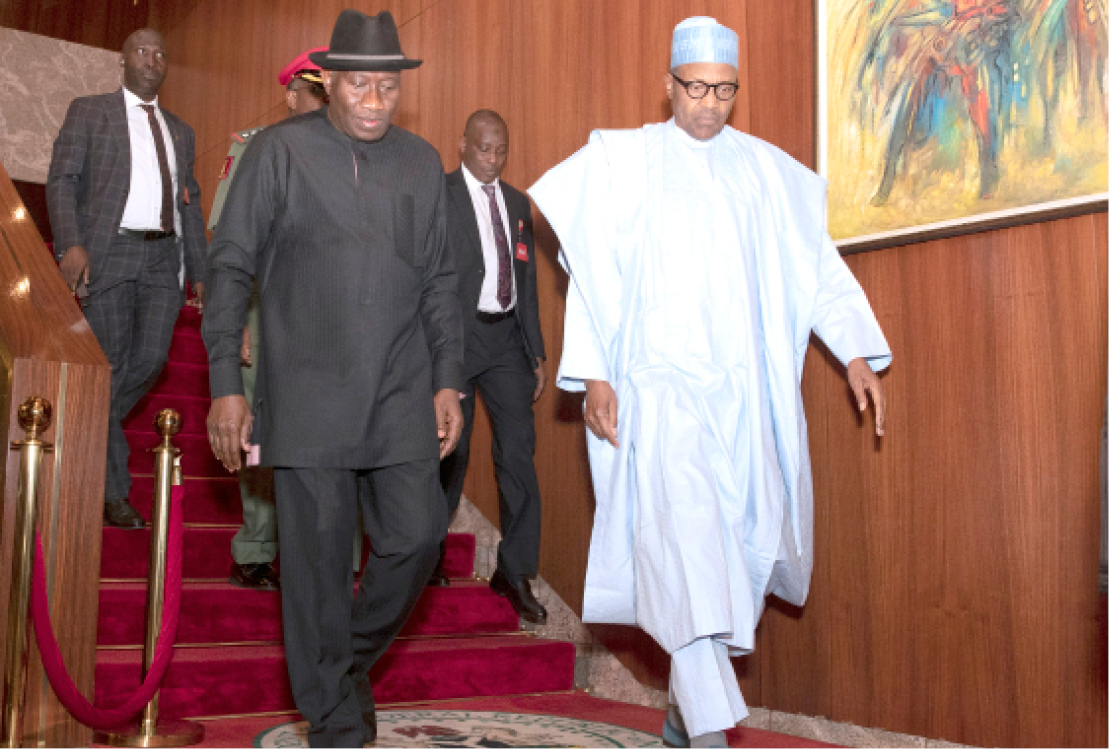President Muhmmadu Buhari, on Tuesday, held another closed-door meeting with former President Goodluck Jonathan at the Presidential Villa, Abuja.
Details of the brief meeting, which had ended, were yet to be disclosed to State House reporters.
Clark to Buhari: Withdraw naming of rail stations after Jonathan, Awolowo
Jonathan meets Buhari behind closed doors
Daily Trust, however, learnt the reconciliation move to end the political crisis in Mali was the focus of the second meeting in less than one month.
Former President Jonathan was at the State House in company of President of ECOWAS Commission, Mr Jean-Claude Kassi Brou, on Tuesday, July 21, to brief President Buhari on the unfolding situation in Mali, necessitating the visit of ECOWAS leaders to consolidate on the agreements reached by various parties.
After Jonathan’s last visit, President Buhari travelled to Bamako, Republic of Mali, on a one-day visit.
The trip followed the briefing President Buhari received from the ECOWAS Special Envoy to the country, former President Jonathan.
The President and some ECOWAS leaders led by the Chairman of the Authority of Heads of State and Government of the sub-regional organisation, President Issoufou Mahamadou of Niger Republic, met in Mali to engage in further consultations towards finding a political solution to the crisis in the country.
The meeting involved the Host President, Boubacar Keita and Presidents Machy Sall of Senegal, Nana Akufo-Addo of Ghana and Alassane Ouattara of Cote d’Ivoire.
Jonathan had, on July 21, filled in President Buhari on his activities as Special Envoy to restore amity to Mali, rocked by protests against President Keita, who has spent two out of the five years second term in office.
A resistance group, M5, is insisting that the Constitutional Court must be dissolved, and the President resign, before peace can return to the country.
Crisis had erupted after the court nullified results of 31 parliamentary seats in the polls held recently, awarding victory to some other contenders, which the resistance group said was at the instigation of President Keita.
Riots on July 10 had led to the killing of some protesters by security agents, causing the crisis to spiral out of control, hence the intervention by ECOWAS.

 Join Daily Trust WhatsApp Community For Quick Access To News and Happenings Around You.
Join Daily Trust WhatsApp Community For Quick Access To News and Happenings Around You.

